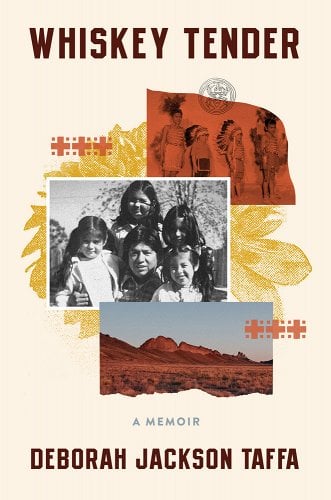My early childhood took place in an era when good Native families didn’t move off their home reservations, because close friends and relatives called relocation a betrayal. It was a time of conflicting choices, when young people like my father and his siblings, who grew up on the reservation, faced a dilemma that pitted high reservation unemployment and double-digit inflation against the desire to belong to their tribe.
In moving from our Quechan (Yuma) reservation in California to the Navajo reservation in New Mexico, my father chose to be an individual, and my parents decided they wanted their kids to be mainstream Americans, passing down an implicit appreciation of social climbing along with and in conflict with the realization that our people are excluded, ironically, from the central mythologies of the American identity.
I want to say ours is the iconic American story, but that would insult our non-Native allies, the decent folk for whom the consequences of broken treaties and forced assimilation are already a burden, and for whom oppression may also be an inheritance. I don’t tell this story to create a divide. I tell it because there are too many dark corners in America that can be relieved of persistent shadows by shining a little light. I tell it because our story belongs to all Americans, some of whom may be surprised by our history. I tell it to celebrate our survival as a culture, as well as the hope, strength, and grace of my family.
This story is as common as dirt. Thousands of Native Americans in California, Arizona, and New Mexico could tell it. Anyone with a grandpa who was haunted by Indian boarding school, who stung his family like a dust devil when he drank. Anyone with a grandma who washed laundry until her fingernails cracked and bled, who went without eating when there weren’t enough groceries because she wanted her ten kids to have a few extra bites.
Anyone with a mother who kept secrets so her kids wouldn’t find out about their father’s jailbird past. Anyone with a father who chose the violence of industrial labor over the violence of reservation life because he wanted his kids to get through private school and make better lives for themselves.
With the help of the U.S. Army, the California legislature distributed weapons to vigilantes, who raided Native homes and killed 100,000 of my ancestors in the first two years of the Gold Rush alone. So many people could tell this story, it is shocking how rarely it has been told. Too many mothers have watched their kids thrown into cop cars without protest. Too many aunties have put ice on black eyes without saying a word. Too many grandmothers have watched their grandchildren, their hope for the future, head out to a party and never come home. Too many girls have pretended nothing happened after experiencing sexual harassment, only to redirect the hate toward the innocent face staring back at them in the mirror.
